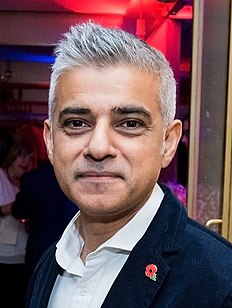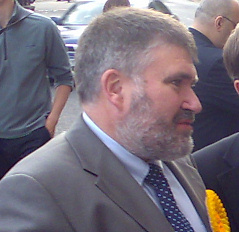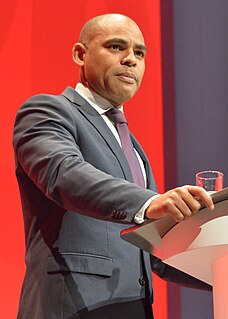
A series of mayoral referendums were held on 3 May 2012 in England's 11 largest cities to determine whether to introduce directly-elected mayors to provide political leadership, replacing their current council leaders, who are elected by the local council. [1]

England is a country that is part of the United Kingdom. It shares land borders with Wales to the west and Scotland to the north-northwest. The Irish Sea lies west of England and the Celtic Sea lies to the southwest. England is separated from continental Europe by the North Sea to the east and the English Channel to the south. The country covers five-eighths of the island of Great Britain, which lies in the North Atlantic, and includes over 100 smaller islands, such as the Isles of Scilly and the Isle of Wight.

City status in the United Kingdom is granted by the monarch of the United Kingdom to a select group of communities: as of 2014, there are 69 cities in the United Kingdom – 51 in England, six in Wales, seven in Scotland and five in Northern Ireland. The holding of city status gives a settlement no special rights. This appellation carries its own prestige and competition for the status is hard-fought.
A Leader of the Council is the leader of the largest political group on a government council.
Contents
- Background
- Question
- Overview of results
- Cities
- Birmingham
- Bradford
- Bristol
- Coventry
- Leeds
- Manchester
- Newcastle upon Tyne
- Nottingham
- Sheffield
- Wakefield
- References
Parliamentary approval was granted for referendums to be held in Birmingham, [2] Bradford, [3] Bristol, [4] Coventry, [5] Leeds, [6] Manchester, [7] Newcastle upon Tyne, [8] Nottingham, [9] Sheffield [10] and Wakefield. [11] The government had also intended to hold referendums on whether to introduce directly elected mayors in Leicester and Liverpool, however before the government could order these referendums, the two city councils had already decided to adopt a mayoral system themselves. Leicester City Council voted to introduce a mayor in 2010 without holding a referendum, and an election was held in 2011 for the position. [12] Meanwhile, despite legislation being passed for a referendum in Liverpool, [13] the City Council voted to bypass the referendum and to instead hold a mayoral election on the same day as other local elections in May. [14]

The Parliament of the United Kingdom of Great Britain and Northern Ireland, commonly known internationally as the UK Parliament, British Parliament, or Westminster Parliament, and domestically simply as Parliament, is the supreme legislative body of the United Kingdom, the Crown dependencies and the British Overseas Territories. It alone possesses legislative supremacy and thereby ultimate power over all other political bodies in the UK and the overseas territories. Parliament is bicameral but has three parts, consisting of the Sovereign, the House of Lords, and the House of Commons. The two houses meet in the Palace of Westminster in the City of Westminster, one of the inner boroughs of the capital city, London.

Birmingham is the second-most populous city in the United Kingdom, after London, and the most populous city in the English Midlands. With an estimated population of 1,137,100 as of 2017, Birmingham is the cultural, social, financial and commercial centre of the Midlands. It is the main centre of the West Midlands conurbation, which is the third most populated urban area in the United Kingdom, with a population in 2011 of 2,440,986. The wider Birmingham metropolitan area is the second largest in the United Kingdom with a population of over 3.7 million. Birmingham is frequently referred to as the United Kingdom's "second city".

The City of Bradford is a local government district of West Yorkshire, England, with the status of a city and metropolitan borough. It is named after its largest settlement, Bradford, but covers a far larger area which includes the towns of Keighley, Shipley, Bingley, Ilkley, Haworth, Silsden and Denholme. Bradford has a population of 528,155, making it the fourth-most populous metropolitan district and the sixth-most populous local authority district in England. It forms part of the West Yorkshire Urban Area conurbation which in 2001 had a population of 1.5 million and the city is part of the Leeds-Bradford Larger Urban Zone (LUZ), which, with a population of 2,393,300, is the fourth largest in the United Kingdom after London, Birmingham and Manchester.
In addition, Doncaster Borough Council decided to hold a referendum on the same day, to determine whether to retain their elected mayoral system, having been one of the earliest authorities to adopt one, in 2001. [15]

Doncaster is a large town in South Yorkshire, England. Together with its surrounding suburbs and settlements, the town forms part of the Metropolitan Borough of Doncaster, which had a mid-2017 est. population of 308,900. The town itself has a population of 109,805 The Doncaster Urban Area had a population of 158,141 in 2011 and includes Doncaster and neighbouring small villages. Part of the West Riding of Yorkshire until 1974, Doncaster is about 17 miles (30 km) north-east of Sheffield, with which it is served by an international airport, Doncaster Sheffield Airport in Finningley. Under the Local Government Act 1972, Doncaster was incorporated into a newly created metropolitan borough in 1974, itself incorporated with other nearby boroughs in the 1974 creation of the metropolitan county of South Yorkshire.
On 26 January 2012 electors in Salford voted in favour of an elected mayor by 17,344 votes to 13,653. [16] There was an inaugural Salford mayoral election, 2012 on the same day as United Kingdom local elections, 2012.

Salford is a city and metropolitan borough of Greater Manchester, England, extending west to include the towns of Eccles, Worsley, Swinton, Walkden, Little Hulton, and Irlam. The city has a population of 245,600, and is administered from the Salford Civic Centre in Swinton.















